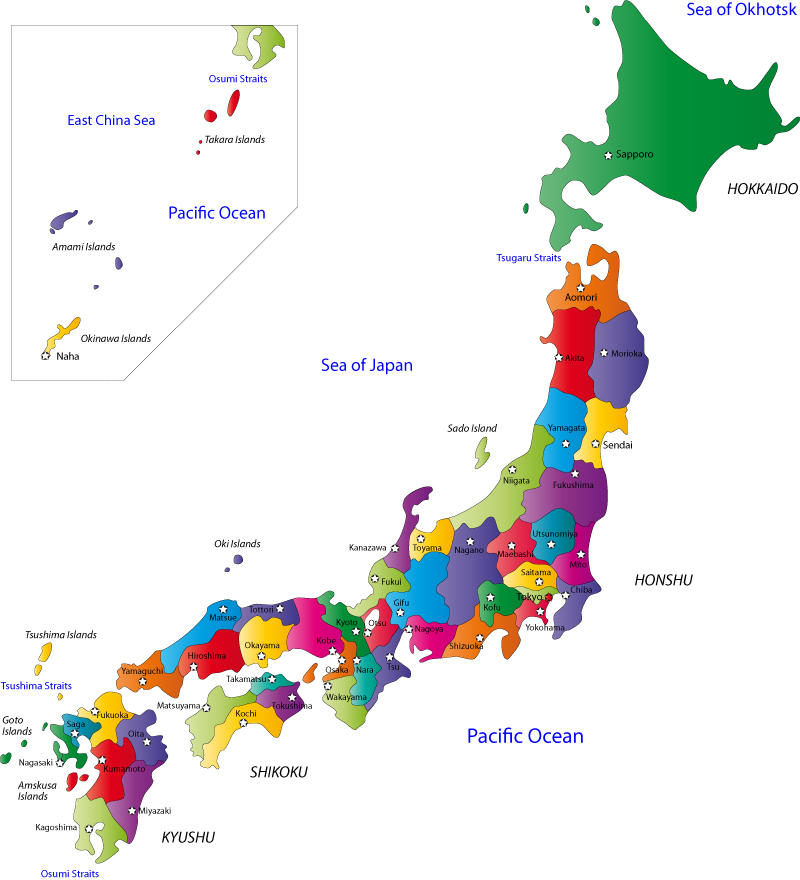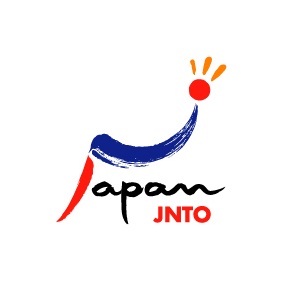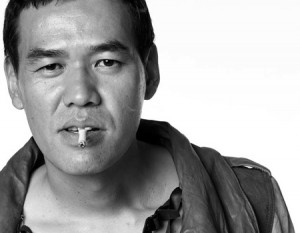Georgia tries JET-like approach to English teaching
 A New York Times article today describes the push in Georgia to put an English teacher in every school and make English, rather than Russian, the required second language. However, while the article mentions the Peace Corps, Teach for America and the South Korean English language effort (probably EPIK) as similar programs, it does not mention JET for some reason.
A New York Times article today describes the push in Georgia to put an English teacher in every school and make English, rather than Russian, the required second language. However, while the article mentions the Peace Corps, Teach for America and the South Korean English language effort (probably EPIK) as similar programs, it does not mention JET for some reason.
Here’s the link to the article: http://www.nytimes.com/2011/01/24/world/europe/24georgia.html
JETAA Chapter Beat 1.24.11
Freelance writer/editor Jonathan Trace (Fukuoka-ken, 2005-08) takes us on a walk around the JET Alumni community for another edition of JETAA Chapter Beat.
- Shinnenkai – Saturday, January 29th, 6:00 at Shabu-Zen. Celebrate 2011 with some shabu-shabu, good friends, and a raffle.
- Shinnenkai – Saturday, January 29th, 5:00 at Yotsuba Japanese Restaurant in Ann Arbor. Celebrate the new year in style with friends and alumni. Upcoming elections, subchapter issues and other event ideas will also be discussed, so do not miss it.
- Yakiniku BBQ at the Beach – Sunday, January 30th, 11:00 to 2:00 at Shelly Beach in Manly. Spend the day outside with fellow alumni and friends for a BBQ. Suikawari, sun and fun to be had by all.
JETAA New Orleans
- Karaoke Shinnenkai – Saturday, February 12th, 7:00 at Little Tokyo Small Plates and Noodle Bar. Sing, eat, drink and ring in 2011 with the group in New Orleans.
JETAA Minnesota
- Bowling Night – Saturday, January 29th, 8:00 at Memory Lanes. Roll some rocks and catch up with old friends at this fun event.
- Happy Hour – Friday, January 28th, 6:00 at Chizakaya. Kick off the weekend with friends and alumni this Friday.
- Urasenke Tatezome Tea Ceremony – Sunday, January 30th, 12:00 at the Japan Information Center, Consulate General of Japan. The JIC is celebrating 2011 with a traditional tea ceremony.
- Shinnenkai – Saturday, January 29th, 7:00 at Restaurant Riki on 45th St. Join JETAANY for their new year’s celebration. It will be izakaya style food and nomihodai(all you can drink), so don’t miss it.
- Kabuki Club – Sunday, January 23rd, 2:00 at the Oakland Asian Cultural Center. This month’s selection will be the classic “Sukeroku: The Flower of Edo.” A casual Shinnenkai will follow the viewing at a nearby restaurant.
- Annual General Meeting and Shinnenkai – Friday, January 28th, 6:00 to 9:00 at the YWCA Hotel Downtown. Elect new directors and lend your voice to the future of JETAABC, then catch up with friends and alumni at the 2011 Shinnenkai after the meeting.
- Shakuhachi Workshop – Saturday, February 5th, 1:00 to 3:00 at the Roundhouse Community Centre. JETAABC presents a workshop by the renowned Shakuhachi(Japanese bamboo flute) artist and musician, Alcvin Ryuzen Ramos. Learn how to play from the master and enjoy a day of Japanese culture.
- JBook Meeting – Monday, January 24th, 6:30 in the Adams Morgan/U Street Area. Jbook is back for the new year, with this month’s selection being “The Housekeeper and the Professor,” by Yoko Ogawa. The discussion will be followed by a screening of the film, so don’t miss it.
What happened at your chapter’s event? If you attend(ed) any of these exciting events, JetWit would love to hear about them. Just contact Jonathan Trace with any info, stories or comments.
JetWit Society: Japanese royalty at the Museum of Natural History today
Just heard from a friend who works at the Museum of Natural History that there is apparently some Japanese royalty visiting the museum right now. No other details at the moment.
Justin’s Japan: NY’s Japan Society Fires Up Sabu Film Retrospective
By JQ magazine’s Justin Tedaldi (CIR Kobe-shi, 2001-02) for Examiner.com. Visit his NY Japanese Culture page here to subscribe for free alerts on newly published stories.
This week, New York’s Japan Society presents Run, Salaryman, Run! A Retrospective of Sabu’s Film Works, six slices of cinema packed with high speed, high style, hard luck, and the quirky lusts and lunacies of post-Bubble Japan.
Born Hiroyuki Tanaka in 1964, Sabu is the cult auteur of “punk n’ roll,” alternative comedies, often imitated, never equaled, and far too rarely shown in the U.S. since his 1996 feature debut, Non-Stop a.k.a DANGAN Runner (a film praised by The A.V. Onion Club as “effortlessly clever” and included in this line-up).
In a world of hazards and happenstance, Sabu zeroes in on blue and white collar everymen tossed into dangerously absurd situations from which they desperately try to run. As things speed along, Sabu brings a fresh and frantic twist to traditional film genres (the yakuza film, the thriller, etc.), giving their lean and clean-cropped premises the electroshock treatment and über edgy music scores.
The salute kicks off Wednesday, Jan. 26 with Monster, winner of the FIPRESCI Prize at the 2000 Berlin Film Festival “for its austere, dark wit and keen eye for human foibles.” Other highlights include The Blessing Bell (Netpac Award, 2003 Berlin International Film Festival, Grand Jury Prize, 2003 Cinemanila International Film Festival), and the international premiere of the Japanese auteur’s latest work, the HD-lensed Troubleman.
Sabu has drawn comparisons with Buster Keaton, Johnnie To and Doug Liman, but his satirical jamborees, more than just friendly black comedies, are truly unlike anything else on the silver screen: they are stamina tests, survival riffs, victory rolls.
Click here for the complete story.
New LinkedIn Group: Monbusho English Fellows (MEFs)
Thomas Schalow has set up a LinkedIn group for Monbusho English Fellows (MEFs). MEFs were the forerunners to JETs, and from JetWit’s perspective, are part of the JET alumni community.
Here’s the link: http://www.linkedin.com/groups?mostPopular=&gid=3757582
A little MEF background from Thomas: “The number of MEFs was small. In my year, 1980, for example, there were only 12 MEFs for all of Japan. The program did not run that many years before it morphed into the JET program, so there may be only 100 or so of these MEFs out there.”
Japanese Technical Translation Lecture
via PNWJETAA. Posted by Dipika Soni (Ishikawa-ken, 2003-06). Dipika currently works as an in-house translator for PFU (a Fujitsu company) in Kahoku-shi, Ishikawa-ken. She is also the vocalist for the Japanese hardcore punk band DEGRADE.
—————————————————————————————————————–
Japanese Technical Translation: Freelancing as a Career
When: Tuesday, Feb. 1 from 3:30-5:00pm
Where: UW Campus, Denny Hall 216
Learn about technical translation as a career. Mr. Barrett will help us understand what technical translation is and how it differs from interpretation and from non-technical translation. Aspects of this introductory discussion include: qualifications for entering the field, where to find work, translation issues, state of the industry, pay ranges, types of work, professional organizations, starting out, and what to expect from clients. He will also discuss machine translation and its potential impact on the future of the industry.
http://jsis.washington.edu/japan/events.shtml
Rotary Peace Fellowship now accepting applications
via JET alum Mark Flanigan. Posted by Dipika Soni (Ishikawa-ken, 2003-06). Dipika currently works as an in-house translator for PFU (a Fujitsu company) in Kahoku-shi, Ishikawa-ken. She is also the vocalist for the Japanese hardcore punk band DEGRADE.
*Note: If you apply, please let them know you learned of it from JetWit. Thanks.
—————————————————————————————————————–
The Rotary Foundation is now accepting applications for the world-competitive Rotary Peace Fellowship. The fellowship provides academic and practical training to prepare scholars for leadership roles in solving conflicts around the world.
Up to 100 fellows are selected every year in a globally competitive process based on personal, academic, and professional achievements. Fellows earn a master’s-level degree or a professional development certificate in peace and conflict studies at one of six Rotary Peace Centers at leading universities in Argentina, Australia, England, Japan, the United States and Thailand.”
Unlike other Japan-related Fellowships (Mansfield, Mombukagakusho), many former JETs don’t realize it is possible to study at ICU in Tokyo through this Rotary Peace Fellowship.
More info here: http://www.internationalpeaceandconflict.org/forum/topic/show?id=780588%3ATopic%3A353101&xgs=1&xg_source=msg_share_topic
JETAA London Mailshot 01.20.10
|
||||||
| Don’t miss out on any emails from JETAA UK – add londonevents@jetaa.org.uk to your address book or safe list. You are registered on the JETAA UK website with the email address vanessa@japaneselondon.com. To unsubscribe, login to your account at www.jetaa.org.uk, click on “My Profile” and update the “Receive JETAA mailshots” field. |
JETs with J.D.s>> An Unexpected Job Resource for JETs with J.D.s: CFN
Andrew R. McCarthy (Akita-ken, 2005-08) is a law student at The Ohio State University Moritz College of Law focusing on international trade, business, and tax. He currently runs the blog JETs with J.D.s, an information source for current JET alumni law students and prospective law students for career paths and approaches within the current legal market. For those considering law school and trying to comprehend the costs and the risks of such an endeavor, he also recommends The Law School Tuition Bubble.
With a New Year comes a renewed energy for Japanese-speaking law students to seek out their future employer. With firms still skittish about hiring and with the legal employment market as crowded as ever, in this post I share my experience as a JET with a J.D. looking for employment in the largest U.S. Japanese-English bilingual job fair. Even though the next one is a whole ten months away – there’s no time like the present to start preparing.
While plenty of other Japanese speakers and JET alums may already know about CFN, it is a surprisingly useful resource for law school students as well.
The post, in full, is available here.
Jobs: Some job postings from JETAANY
via JETAANY. Posted by Dipika Soni (Ishikawa-ken, 2003-06). Dipika currently works as an in-house translator for PFU (a Fujitsu company) in Kahoku-shi, Ishikawa-ken. She is also the vocalist for the Japanese hardcore punk band DEGRADE.
*Note: If you apply for any of these positions, please let them know you learned of it from JetWit. Thanks.
—————————————————————————————————————–
See below for recent job postings from JETAA NY. (Click on the link for more details).
Scholarship & Grant Opportunities (Aurora Foundation)
via JETEAA Chicago. Posted by Dipika Soni (Ishikawa-ken, 2003-06). Dipika currently works as an in-house translator for PFU (a Fujitsu company) in Kahoku-shi, Ishikawa-ken. She is also the vocalist for the Japanese hardcore punk band DEGRADE.
—————————————————————————————————————–
1. Aurora Japanese Language Scholarship
2. Aurora Challenge Grant
Japanese Language Scholarship Foundation, aka Aurora Foundation, is currently accepting applications for the year 2011 scholarship and Aurora Challenge Grant. The application forms can be downloaded at www.jlsf-aurora.org. For more details on the scholarship and grant, click “Read More”.
 What does “Saving JET” have to do with joining your JET prefecture’s LinkedIn group?
What does “Saving JET” have to do with joining your JET prefecture’s LinkedIn group?
- The biggest threat to JET (and JETAA) now is attrition at the local government level as prefectural governments increasingly choose to reduce costs by getting ALTs from dispatch companies rather than hiring JETs.
- The most effective way to counter this trend is to demonstrate a positive ROJ (“Return on JET-vestment”) at the local government level.
- Local governments have expressed a strong interest in being able to connect and communicate with JET alumni who worked in their prefectures.
- JET Alumni have never been organized by prefecture….
……until now. So please do your part and sign up for your respective JET Alumni LinkedIn Group below. It’s one small act of giving back to your prefecture that can make a big difference over time.
Yoroshiku onegaishimasu.
–Steven Horowitz (Aichi-ken, Kariya-shi, 1992-94)
jetwit [at] jetwit.com
Prefectural JET Alumni LinkedIn Groups
- FYI: All groups below were created in connection with JetWit and not by the prefectural governments. They’re just intended to help facilitate future communications.
- Current JETs and Monbusho English Fellows (MEFs) welcome too, as always. Additionally, prefectural and other government employees as well as residents of each prefecture are welcome to join the groups.
- If anyone would like to be a “Manager” for their respective LinkedIn group, that would be very helpful. Just get in touch. Primary role will be approving requests to join the group.
- You may of course join other groups in addition to your own prefecture’s group if it’s helpful to you.
-
Aichi JET Alumni
-
 Akita JET Alumni
Akita JET Alumni -
Aomori JET Alumni
-
Chiba JET Alumni
-
Ehime JET Alumni
-
Fukui JET Alumni
-
Fukuoka JET Alumni
-
Fukushima JET Alumni
-
Gifu JET Alumni
-
Gunma JET Alumni
-
Hiroshima JET Alumni
-
Hokkaido JET Alumni
-
Hyogo JET Alumni
-
Ibaraki JET Alumni
-
Ishikawa JET Alumni
-
Iwate JET Alumni
-
Kagawa JET Alumni
-
Kagoshima JET Alumni
-
Kanagawa JET Alumni
- Kobe JET Alumni
-
Kochi JET Alumni
-
Kumamoto JET Alumni
-
Kyoto JET Alumni
-
Mie JET Alumni
-
Miyagi JET Alumni
-
Miyazaki JET Alumni
-
Nagano JET Alumni
-
Nagasaki JET Alumni
-
Nara JET Program Alumni (set up by Savannah Maynard)
-
Niigata JET Alumni
-
Oita JET Alumni
-
Okayama JET Alumni
-
Okinawa JET Alumni
-
Osaka JET Alumni
-
Saga JET Alumni
-
Saitama JET Alumni
-
Shiga JET Alumni
-
Shimane JET Alumni
-
Shizuoka JET Alumni
-
Tochigi JET Alumni
-
Tokushima JET Alumni
-
Tokyo JET Alumni
-
Tottori JET Alumni
-
Toyama JET Alumni
-
Wakayama JET Alumni
-
Yamagata JET Alumni
-
Yamaguchi JET Alumni
-
Yamanashi JET Alumni
Note on Methodology: I took a relatively awkward approach to setting this all up. I created subgroups via my LinkedIn account. However, LinkedIn only lets a user create up to 10 groups and up to 20 subgroups, so I had to create a new LinkedIn account (“Jet Wit”) and use that account to set up the rest of the prefectural alumni groups. Not ideal, but it seemed to be the best solution under the circumstances and given limited resources. It’s always better to have something than nothing. I’m very open to any ideas and suggestions on better ways to set this up.
National AJET’s “Life After JET”: Andrew Sowter
 National AJET shares former JET participants’ experiences – and a little advice – with current JETs in their new monthly interview, Life After JET. Contact lifeafterjet [at] ajet.net to be featured in future posts.
National AJET shares former JET participants’ experiences – and a little advice – with current JETs in their new monthly interview, Life After JET. Contact lifeafterjet [at] ajet.net to be featured in future posts.
*************
This month, we further explore ways to build a teaching career in Japan from the JET experience. We interviewed Andy Sowter, a former-Prefectural ALT who taught at high schools and elementary schools for four years in Nara. After completing a Masters Degree in Applied Linguistics / Teachers of English to Speakers of Other Languages (TESOL), he is now a lecturer at Kwansei Gakuin University in their Intensive English Program.
Andy recommends that JET participants looking to use JET as a springboard to teach at a Japanese university need to start preparing early. Many universities look for experience presenting and publishing and “the Mid-Year Training Seminars are a good place to start.” In addition, he recommends that university job-seekers “join JALT and attend a few meetings to get a feel for the people you will be competing with for jobs.” For more advice from Andy, see the full interview or check out AJET’s Life After JET links page to find more information about the qualifications, resources, etc mentioned in this article.
National AJET: I know that you started working on your Masters while on JET. Since you didn’t have a background in linguistics before that, did you need to do any extra preparation?
Andy Sowter: I started doing my Masters during my 3rd year of JET, I finished JET after my 4th year to complete my Masters full time in Australia. Working and studying with a young family was difficult [so take] advantage of the extra free time that JET often gives you to study (either Japanese or a qualification).
To apply, I had to write a letter to the program chair stating the reasons why I thought I would be able to complete a degree in Applied Linguistics coming from a science-based background. Before applying I corresponded with the program chair to make that personal connection, I think this helped. However, I did also have a CELTA degree and three years of teaching experience to back up my application.
I was very happy with my results as I think they reflected the amount of effort I put into my studies. Seriously, anyone who decides they want to do further study has to commit, it takes a huge amount of time and effort.
NAJET: Can you tell me a little bit about your Masters programme?
Andy Sowter: My program was done through an Australian-based university called Griffith University. They had a distance education masters program [that was recommended by other JETs]. The program was designed to be completed part time over two years. It was completely course based (i.e. no thesis, just huge assignments). Two of the courses required evaluation of classroom teaching and lesson planning. I chose to go back to Australia to complete these but I could have done it externally if I could have found someone here in Japan willing and qualified to do so. By going back to Australia and completing my courses internally I managed to complete my degree in 18 months.
NAJET: What kind of requirements are there for teaching in Japanese universities?
Andy Sowter: It is getting harder and harder to get jobs as student numbers decline. To succeed in the Japanese university system you need a Masters Degree. In addition, you [must have] teaching experience in a university, [be published], [have Japanese language proficiency], and contacts [to] acquire better teaching positions.
When I started out, I took part time jobs. I managed to get some publications and made good contacts. After a year teaching part time, I [got] a full-time contract position and then relatively quickly a second better full-time (contract) position (my current job).
Click here for the rest of the interview.
Update: JET-Tourist Tally Project
 Check out the latest numbers for the JET-Tourist Tally Project (i.e., how much tourism revenue alone does JET generate directly for the Japanese economy?)
Check out the latest numbers for the JET-Tourist Tally Project (i.e., how much tourism revenue alone does JET generate directly for the Japanese economy?)
http://jetwit.com/wordpress/2010/12/08/project-how-much-tourism-revenue-has-jet-generated-for-japan/
Tentative conclusion thus far?
With over 250 respondents to date, it looks like it’s fair to say that the average JET generates tourism revenue for Japan in an amount equivalent to about 1/5 to 1/6 of their salary. In other words, you could argue that 1/5 to 1/6 of the budget for JET salaries should be subtracted right off the bat for discussion purposes. This is in addition to other return on investment from JET (e.g., financial, diplomatic, cultural).
Job: InternAsia Program (Cambodia)
 Stephanie Boegeman (ALT, Akita-ken, 2006-09) gets her kicks from finding fun crazy ways to see the world and getting paid to do it. She is constantly in search of job, internship, and travel ideas to add to her site Playing With Hire, in the hopes that more JET alumni and like-minded souls join her in her quest to find creative, inspiring, and unique ways to make ends meet.
Stephanie Boegeman (ALT, Akita-ken, 2006-09) gets her kicks from finding fun crazy ways to see the world and getting paid to do it. She is constantly in search of job, internship, and travel ideas to add to her site Playing With Hire, in the hopes that more JET alumni and like-minded souls join her in her quest to find creative, inspiring, and unique ways to make ends meet.
If you’re looking for a first step into the world of international development, you may want to consider interning with the Parivartan Project in Cambodia. Applicants must be able to commit to a year abroad, and be between 22 and 35 years old. Detailed information on the program can be found here.




